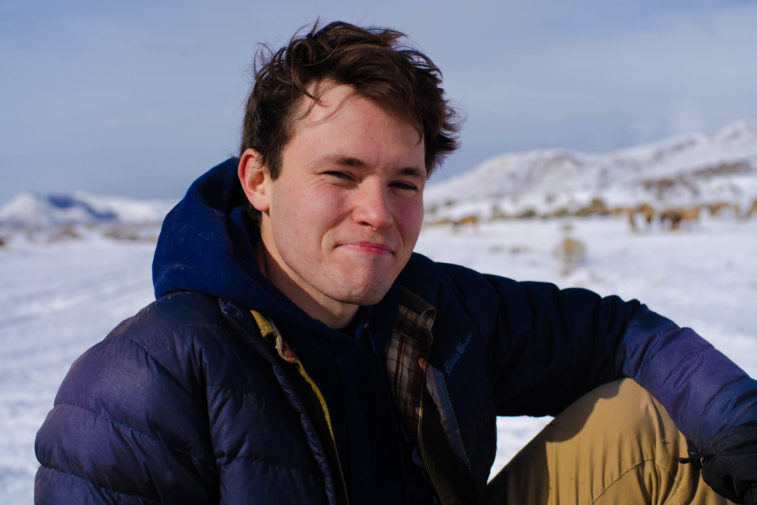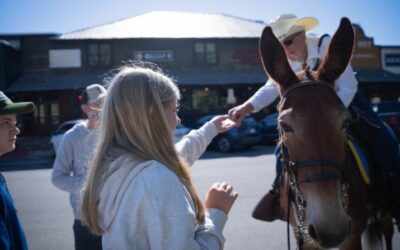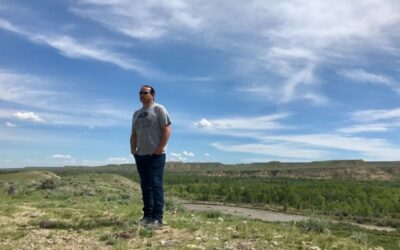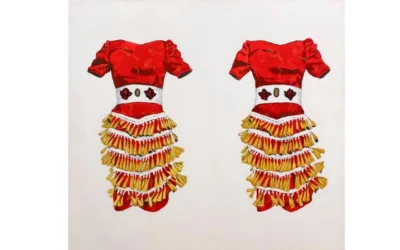We take a look behind the news to one of the people who deliver it to the KHOL airwaves. KHOL reporter and producer Will Walkey talks about his work here at the station, what he’s excited to report about and what drew him to radio. Will joined the newsroom in late October, just days before the election. Originally from Tacoma, Washington, Will went to college in Maine and is a recent graduate from Columbia University, with a master’s in journalism.
COHEN: It’s been great to have you here at the station these past few months. What drew you to Jackson?
WALKEY: Well, it only really takes one look at the Tetons before wanting to spend as much time here as possible. The opportunity to be able to join a small, tight knit community that clearly really cares about each other and really wants the best for each other, I think is kind of going away in parts of the rest of United States and is really unique. And so when I got the offer to come to KHOL, it was really a no brainer to take the job.
COHEN: What surprised you most about this community?
WALKEY: I think what surprised me the most as a reporter has just been the access that I get, having the mayor’s phone number and having the town councilors phone number, and the fact that they’re actually able to talk, and to want to talk to their community radio station I think is really important, and is really exciting for us moving forward.
COHEN: Something you’ve been focusing on here is solutions journalism. What does that mean and what is an example of a solutions journalism story?
WALKEY: Solutions journalism. It’s right in the name. It says, who are some people who are actually solving this problem? What are some interesting ideas they’re bringing to the table that are unique? And how is this something that maybe can be taken by policymakers to actually make positive change in the community? Some examples of solutions, journalism happening here are some of the reporting that we’ve done on housing and also water quality. You know, those are some big issues that everyone thinks about and everyone knows are some of the largest problems that are occurring here. And they can be so daunting to people. Solutions journalism takes a small sliver of someone trying to solve, even if it’s just a minor problem, even if it’s just a wetland helping out water quality. And it helps listeners put in a context that while actual progress is being made here, it’s going to take time. But there are some solutions being worked out.
COHEN: So it’s looking at solutions here in Jackson, but also in the intermountain west and even abroad.
WALKEY: Yeah, absolutely. And it makes Jackson more of an interconnected place with other areas in our region.
COHEN: What are you most excited to report on?
WALKEY: I got to say, I have two conflicting answers with this. On the one hand, housing is the largest issue. And like I was just talking about solutions, journalism, I think being able to report on ways that people are thinking about improving housing in the community, also the rampant inequality and how that needs to be addressed. I think that can have the biggest impact in terms of what my reporting can do for this community. Housing is one of the most basic rights and one of the most basic things that you need to survive.
I’ve lived in some really bad housing situations before. It affects every part of your life and it makes it hard to do your job well. On the other side, as someone who has never lived in the Mountain West before and is seeing this all new environment, I’m really excited to report on some of the conservation and environmental issues around here, such as water quality, such as animal conservation. And that’s just really fun to go out and report. I also think that people really care about that here and are really excited to listen to stories about this incredible, amazing environment that we live in.
COHEN: So that answer really gets to the dynamic here. People come for the wildlife, for the nature, the environment, the animals. But then there’s this other very real human side.
WALKEY: And to be honest with you, I think a lot of people love to read about the environment, especially in other outlets, and definitely with us, too. And those are some of our most popular stories — our environmental coverage. But at the same time, there are actual people who are living here and struggling. And I don’t want that to take a backseat in my reporting. So I really want to get to some of the human interest stories.
COHEN: And what is it that drew you to radio instead of, say, print journalism?
WALKEY: I love to read print journalism and I’ve read print journalism my whole life. I think that’s the primary way a lot of people get news. But the stories that have most affected me in my life have pretty much all been radio stories because I think there’s something special about hearing someone’s voice, especially when they’re passionate about a subject. Radio is able to layer in sound. It’s able to create settings and soundscapes that draw me in and personally affect me because of that. And because you’re creating a layered soundscape, draws listeners, to the point where they might remember a story for the rest of their life.
Like I remember all the time as a kid listening to NPR with my parents while they were driving me to school, and we would pull into the driveway on our way home and often have those in radio. They call them driveway moments where we’re sitting there for an extra three minutes doing nothing but listen to a story. And that’s why I love radio.
COHEN: Will, is there anything else you want listeners to know about you?
WALKEY: I am trying my hardest to be humble as a reporter around here. I know that to join into a tight knit community around Jackson takes time. It takes time to learn the context of living here. I’m really excited to come in with a fresh set of eyes as someone who can say, well, why are we doing things this way and how can we change these things? But I also recognize that part of the reason I think that way and I when I’ve come in, I’ve been so excited to do so many things, is because I haven’t lived here for so long.
And so I just have a lot to learn and just hope that anyone who wants to talk to me about what it’s like to live here, especially if you’ve lived here a long time and seen all the changes that have been happening around here, would be willing to talk to me. And I think that that’s going to make me as a reporter and also the station just better moving forward. I’m looking forward to that.
COHEN: Thank you for joining me here in the studio today. And for listeners, if you have a story, idea or tip, you can contact will@jhcr.org. Stay tuned for more from the newsroom at the top of the hour and in our weekly show, Jackson Unpacked airing Wednesdays at 7:30 a.m. and Fridays and Sundays at 12:30 p.m. We’ll also be back next week with a conversation with our brand new news director, Kyle Mackie.





